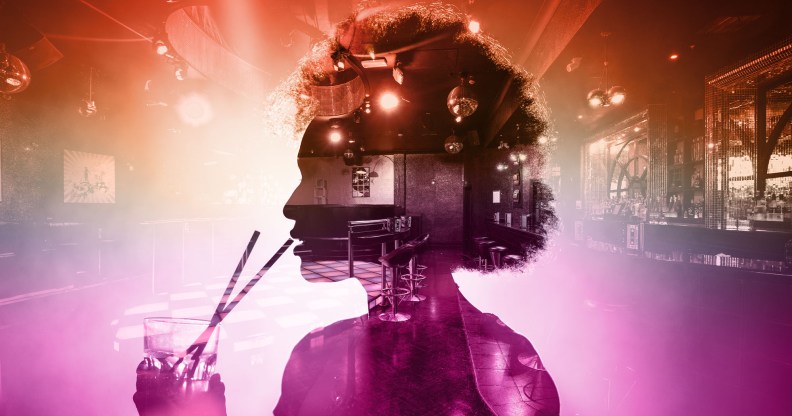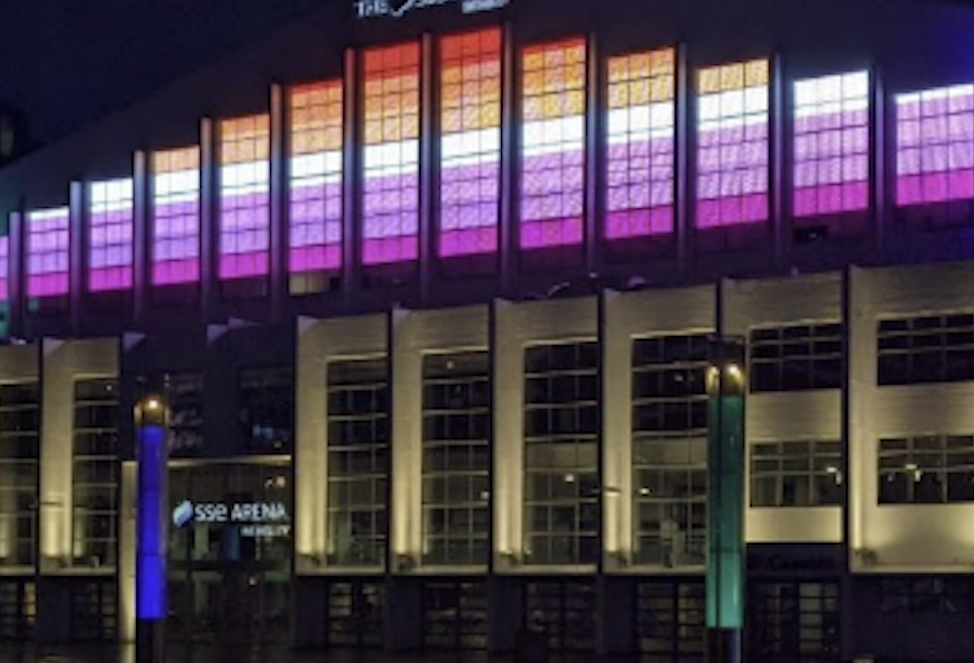Where have all the lesbian bars gone?

Only three lesbian bars remain in open in the UK today. (Credit: Getty Images)
There are only three permanent lesbian bars in the UK, as of October 2023.
The gradual decline of LGBTQ+ venues across the UK has been well-documented in recent years, but for queer women specifically, it can feel like there are barely any spaces left to gather as a community.
But although permanent venues for lesbian and bisexual women are lacking, it seems the lesbian scene in the UK is thriving in other ways, with parties such as LICK and Butch Please consistently pulling in huge crowds.
So what is the reason behind the decline in lesbian bars across the UK, and what’s the future for queer women’s nightlife?
The UK’s lesbian history
The now-closed Gateways Club in Chelsea is thought to be the first recognised lesbian bar in the UK, opening in 1931 and becoming women-only in 1967.
According to Historic England, before and during World War Two, most LGBTQ+ bars were found in central London, before shifting to west London in the 1950s and ‘60s, at a time when LGBTQ+ bars were frequently raided by police.
Towards the ‘90s, the lesbian scene grew, branching out to east London; Stoke Newington was formerly branded a “lesbian mecca”, with lesbian bars Due South, Blush, and Oak Bar opening in the 1990s – but all closing by 2015.
The 2000s and 2010s marked a mass closure of LGBTQ+ venues across the capital, with London lesbian bars Candy Bar, Glass Bar and Rush Bar in Soho shutting during this time.
Today, we have just She Soho in central London, Vanilla in Manchester, and The Fox in Birmingham as the only permanent UK venues specifically catering to queer women.
Where have all the lesbian bars gone?
Experts have explained that from gentrification and rising rents to Covid-19 lockdowns, money is the biggest barrier in not only opening new lesbian bars, but keeping existing venues open.
London’s Night Czar, Amy Lamé, told PinkNews: “Before Sadiq was Mayor, the capital lost more than half of its LGBTQI+ spaces over the course of a decade.
“Venues and spaces faced pressure from developments and a lack of protection in the planning system, alongside rising business rates and rents.
“Sadly, the pandemic had a huge impact on LGBTQ+ venues, and now the cost-of-living crisis has left venues struggling with a range of issues including rising inflation, energy bills, prices and staff shortages.”
Other business owners explained bars catering to women could have more considerations to prioritise, including safety.
“Women generally can often feel anxious about enjoying the London nightlife; there has been a lot of conversations about women putting keys between their fingers for protection, and not walking with headphones in at night,” Tina, a spokesperson for She Soho, told PinkNews.
“Queer women, in addition, have to sometimes navigate over-sexualisation, homophobia and transphobia… Generally, queer spaces are targeted towards queer men, and not as considerate to the interests and needs of queer women, which are equally important.”
Celine Lessard, founder of inclusive karaoke night Dykes on Mics, explained how the challenges involved in setting up a permanent venue – from funding to prioritising accessibility – have led many queer women to “take matters into their own hands” and create one-off events and club nights, such as Pxssy Palace.
“I think the decline of lesbian bars is a result of the decline of permanent venues,” Lessard told PinkNews.
“It’s just become really, really difficult to open venues because of property prices and how complex those processes are, and women – especially trans or non-binary people’s – access to money and expertise historically has not been as good.
“Especially after Covid… people are just taking matters into their own hands and saying, ‘we need something right now. We can’t open a bar, we don’t have the funds, we don’t have the capacity. So let’s just put on a night and at least have that space to bring the community together’.”
Lessard pushed back at the stereotype that queer women don’t want to go clubbing as much as queer men do, claiming Dykes on Mics is “chaotic in the most safe and joyful of ways” and queer women want to “have a really good time”.
“We want to be around people that understand our experiences. We want to feel safe, and we want to have just a really good time in an environment that feels right for us,” she said.
‘We’re not unique in our challenges’
The declining numbers of lesbian bars mirror shrinking numbers of not just LGBTQ+ venues, but all venues, including straight pubs and clubs.
A report commissioned through the Mayor of London by University College London found that between 2006 and 2017 over half of London’s LGBTQ+ venues closed, leaving just 53 standing.
It’s not just in the UK either, with documentary and fundraising campaign The Lesbian Bar Project launching in America in 2020 with the aim of supporting the remaining lesbian bars in the US.
Gary Henshaw, owner of the Ku Group, which includes She Soho and the now-closed Candy Bar, told PinkNews: “I don’t think LGBTQ+ bars are unique in our challenges.
“Some of this decline is down to the fact that people are more comfortable these days showing their sexuality in non-LGBTQ+ venues… but I think part of it is to do with the rising rents. They are a struggle, it is getting harder and harder for independently-owned businesses, and a lot of LGBTQ+ venues are independent.”
He added that the Covid-19 pandemic was “devastating” on businesses, and the Ku Group – including She Soho – got through Covid in part because of the furlough system and business grants.
“It was a very, very challenging couple of years for everybody in the business,” he said. “We’re now in a different crisis – the cost-of-living crisis.”

The future for lesbian spaces
Experts have claimed funding for LGBTQ+ venues and increased protection for trans and non-binary people is critical to ensuring venues survive, and maintaining dedicated safe spaces for the LGBTQ+ community are “absolutely essential”.
“There are people in our community who won’t find that safety net in other venues, who aren’t comfortable in a non-LGBTQ+ environment, so I think it’s actually essential that we always have safe spaces,” Henshaw said.
“I’m optimistic for the future. We’ve survived Covid, I think we will survive this difficult time with inflation and the rising cost of everything. I’m confident that Ku Bar and She Bar will continue to go from strength-to-strength.”
Lessard echoed Henshaw’s claim that LGBTQ+ spaces are “essential”, adding rising transphobia is a critical reason to save LGBTQ+ spaces.
“Creating that space, it’s about mental, physical and emotional safety, but also about creating your community, and I think that becomes more important the more kind of discrimination you’re facing on a daily basis,” she told PinkNews.
Lessard explained that going forwards, the most important part of supporting LGBTQ+ venues and events, besides financial support, is to consistently visit them.
“Share them! If you see something that you really like the sound of, send it to your friends, bring your friends and just speak about us in a way that’s more positive,” she said.
“Don’t say that we don’t go out and we’re staying home with our cats, and that’s why a lesbian venue will never succeed.”
How did this story make you feel?

